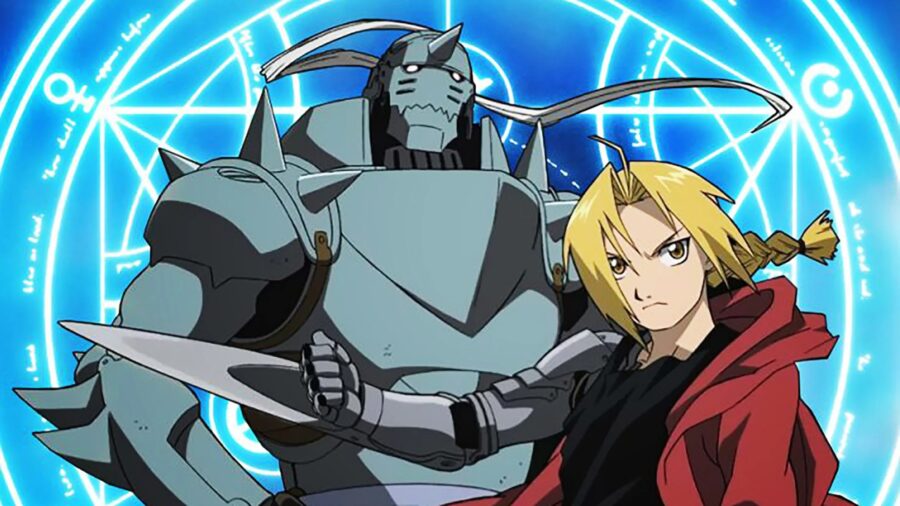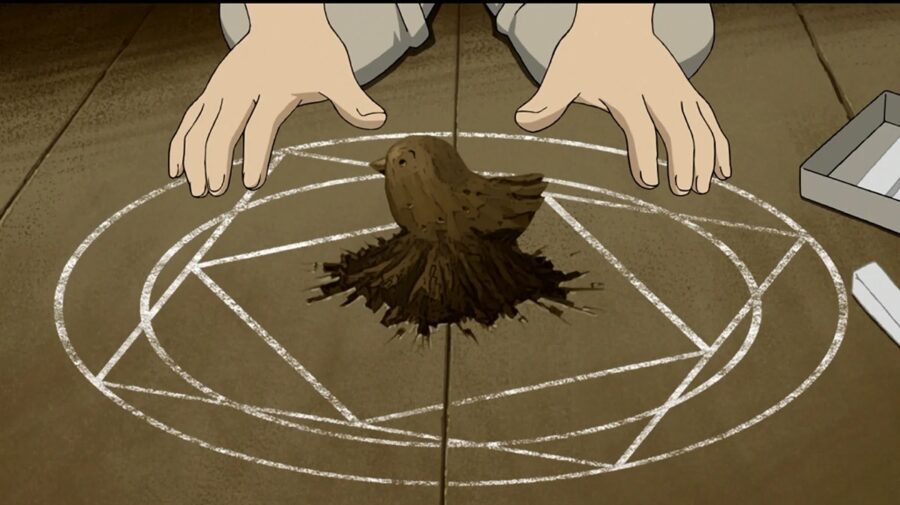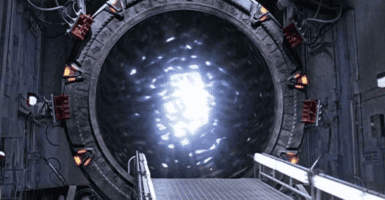Fullmetal Alchemist Has The Best System Of Magic Because It Plays By The Rules

Power systems are fun, especially when they have clear rules and limits to how they can be used. While it’s fun to see Harry Potter throw around spells because he’s a “Chosen One” or One Punch Man making fun of the concept of non-sensical shonen power systems by making Saitama unimaginably powerful because of a simple workout regimen, it’s much more satisfying when you understand how and why powers work in a fictional world. This is why Fullmetal Alchemist‘s alchemy system is arguably the best power system in anime.
Fullmetal Alchemist establishes the rules of its world early and often, grounding the powers of the Alchemists according to its heightened reality.
Fullmetal Alchemist explains how alchemy works right from the jump, with the intro to Fullmetal Alchemist: Brotherhood clearly explaining the Principle of Equivalent Exchange. Just by putting this concept in the intro, you know that Hiromu Arakawa put a lot of thought into his power system and that the series is going to stick to it. In short, alchemy allows people, known as Alchemists, to manipulate or alter matter using natural energy in a process known as Transmutation.
So, how does Transmutation work? In Fullmetal Alchemist, an Alchemist needs to understand the three steps of Transmutation to utilize the craft. These steps include Comprehension, Deconstruction, and Reconstruction.

Comprehension is fairly self-explanatory. Alchemists in Fullmetal Alchemist need to have a thorough and comprehensive understanding of the atomic and molecular structure of the materials they wish to transmute. Along with this chemical knowledge, they also need to understand the kinetic energy and flow within the material.
With this knowledge, they can then Deconstruct the material, using energy to break down the structure of the material so that it can be reformed in the Reconstruction phase, where the material is reformed into a new shape. The alchemy in Fullmetal Alchemist is tied to The Gate, which is the source of alchemy and essentially the metaphysical doorway to God’s domain. Alchemists typically transmute using the Four Classical Elements (Water, Earth, Fire, and Air) or the Three Essential Principles (salt, sulfur, and mercury).
Fullmetal Alchemist appears complicated on the surface, but the reliable internal logic makes it easy to follow after only one episode.
While the actual craft of alchemy in Fullmetal Alchemist may seem a little heady, it’s all tied to the central concept known as the Law of Equivalent Exchange. The Law of Equivalent Exchange essentially boils down to this — something can not be created from nothing. In order to create something, something must be exchanged and lost in return.

Fullmetal Alchemist further breaks down the Law of Equivalent Exchange into two different parts — The Law of Conservation of Mass and the Law of Natural Providence. The Law of Conservation of Mass says that an object can’t be created from nothing and that something that is deconstructed will be reduced to parts of equivalent mass. In other words, if you transmute something that weighs one pound, the resulting materials or new object will also weigh one pound.
The Law of Equivalent Exchange is at the root of the power system in Fullmetal Alchemist, and serves as the impetus for the show’s plot.
The Law of Natural Providence states that something made of a particular substance or element can only be transmuted into something with similar properties or structure. So an alchemist in Fullmetal Alchemist can only transmute fire into something similar to fire. Ultimately, these rules prevent alchemy from being a power without limits.
Fullmetal Alchemist: Brotherhood rightfully sits as one of the best mangas and animes of all time because of its amazing story, great characters, and beautiful animation. But the power system of alchemy helps to elevate it even more, thanks to its faithfulness to the system and the power system making sense throughout the story. Make sure to check the show out on Funimation if you haven’t done so already.












